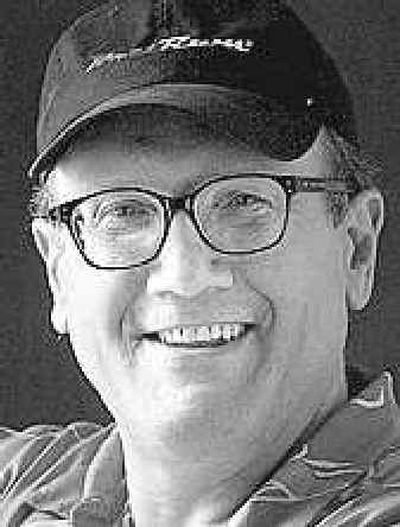It’s never too late to raise a last glass to Flaherty’s

I attended a wake for a downtown saloon the other night.
That wasn’t the odd part.
What struck me as strange was that Flaherty’s, the dearly departed Spokane bar being toasted and eulogized inside the cigarette smoke-hazed confines of the Satellite lounge, actually went dark almost 10 years ago.
That’s a long time to hold off on a funeral.
But the more I sat and listened, the more the send-off made sense.
First off, five former Flaherty’s employees now earn their paychecks at the Satellite. Included in that list is Colleen Freeman, who owns the Satellite, which occupies the southeast corner of Sprague and Stevens.
Flaherty’s was located a short walk west from the Satellite, at 514 W. Sprague.
Geography is the second factor behind the wake.
Anyone who bothers to make a pilgrimage to the former Flaherty’s site today will find themselves staring through a chain link barrier at heavy equipment and a gaping hole.
Flaherty’s was part of the Rookery Block that is presently being bulldozed into oblivion.
Time is running out for some white knight investor to step forward and buy the still-standing landmark Rookery and Mohawk buildings. If it doesn’t happen, well, the plan as I understand it is to turn the whole shebang into some kind of surface parking lot.
Which explains the “They Paved Paradise and Put Up a Parking Lot” signs plastered inside the Satellite.
So feeling nostalgic for those good ol’ pre-demolition days, the former Flaherty’s workers decided to call a gathering. Or as one Flaherty’s fan put it, “we’ve invited everyone who used to get drunk there.”
My Flaherty’s recollections are vague. I remember going in there no more than a time or two, probably to interview Pat Stiley.
Back in the day, only the Flaherty’s barkeeps kept more regular hours there than the Spokane attorney.
“That’s my office,” he says, pointing at the rubble. He’s only half kidding. Stiley conducted business and pleasure there, which is why “my tab was three or four thousand a month.”
Stiley and the other F Troops describe their bygone bar as one of those melting pot joints on which the old “Cheers” TV show was based.
Think blue collar meets white collar meets no collar. That pretty much describes Flaherty’s and the Satellite has carried on that tradition.
“The soul of that hole is still right here,” adds Stiley.
If there’s a Flaherty’s Fan Club, Satellite co-owner Kimberly Dunham is president. She was a 21-year-old pup with a fresh teaching degree when she walked into Flaherty’s the day after it opened in June 1981. Dunham was looking for a temporary job. Instead she found a career.
Dunham had heard that owner Jim Flaherty “was hiring girls in black dresses. So I put on a black dress and three-inch heels.”
Flaherty asked if she had experience in the watering hole biz.
To which Dunham responded, “No, sir, but I’m from a family of 13 and if that isn’t experience and hard work, I don’t know what is.”
Flaherty hired her on the spot.
He sold the bar in 1985, but Dunham stayed put. She worked at Flaherty’s until it closed and then at Gabby’s, the bar that replaced it.
When the Satellite opened seven years ago, Dunham made the migration.
“It gave me my life and my living for so many years,” she says of Flaherty’s.
You can’t talk about Flaherty’s without mentioning its place as a footnote in Spokane crime lore.
Flaherty’s was one of the area bars under surveillance in the massive 1994 federal Operation Doughboy cocaine investigation. It was identified as a hangout for several people named in the Doughboy case.
So if Flaherty’s was really like Cheers, the slogan during the Doughboy days might have been: “Where Everybody Nose Your Name.”
Call Dunham naïve, but she says she never saw any coke selling or snorting. The first sign of trouble she laid eyes on was the day she came to work to find the place crawling with government agents.
Dunham prefers to remember the laughter and long-lasting friendships that were formed on that downtown block that is soon-to-be no more.
“It’s all about the memories,” she says. “I grew up on Sprague Avenue.”